AirTag vs. Tile: How Apple’s key finder compares
Apple's AirTag wants to take on the Tile Pro and Tile Mate to become the best key finder
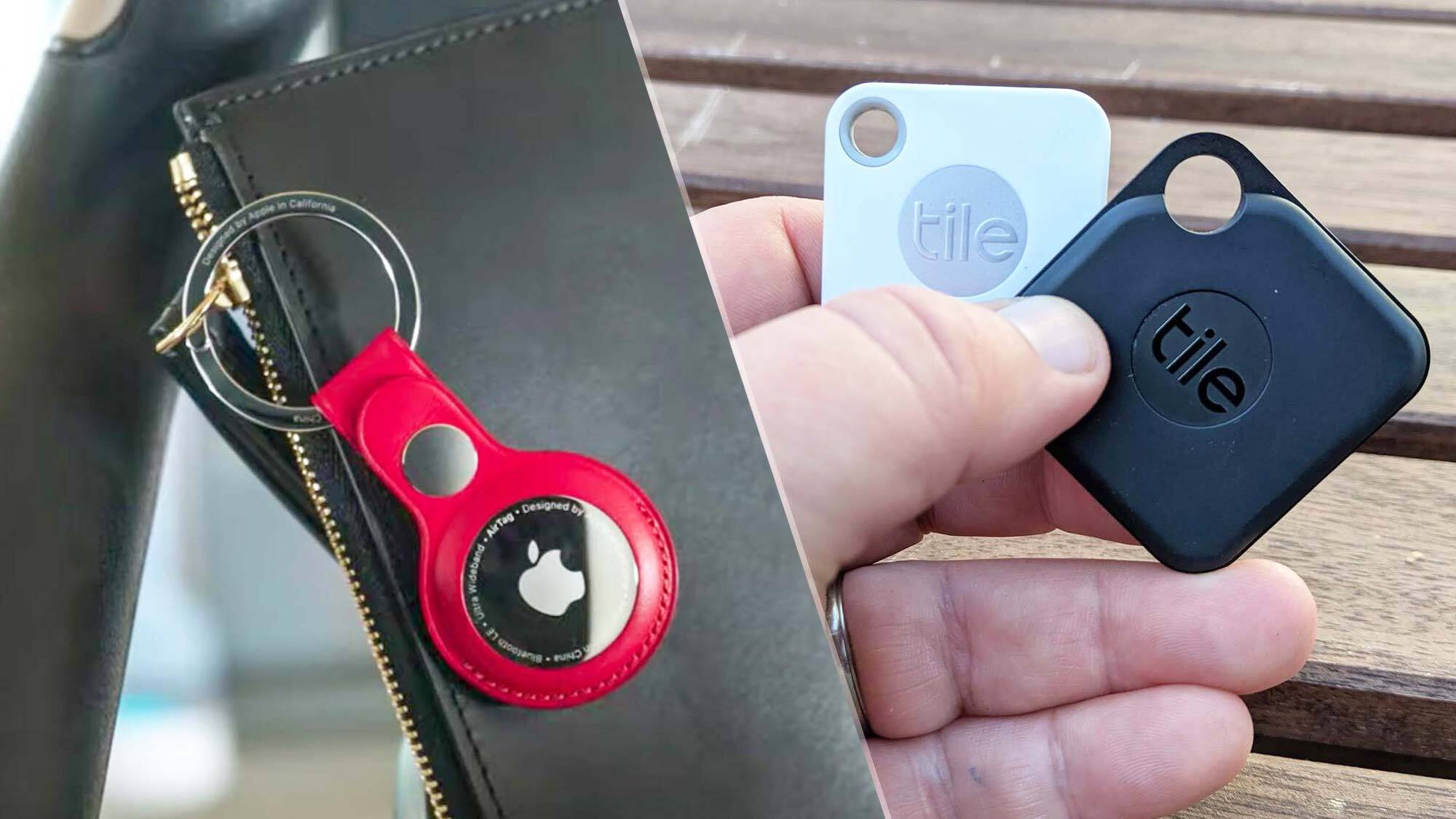
The arrival of Apple AirTag at the April Spring Loaded event did more than just put to rest more than a year of rumors about Apple's long-awaited key finders and their imminent release. It means we're finally going to get the AirTag vs. Tile face-off to determine the best key finder out there.
Of course, the AirTag isn't available just yet — it doesn't ship until the end of April. But when the new tracker ships, iPhone users will have a new way to keep tabs on keys, backpacks and other valuable items. And that means stepped-up competition for Tile.
- Check out the best iPhones right now
Right now, Tile tops our choice for key finders. But AirTag takes a very different approach from what other trackers have offered before. This AirTag vs. Tile comparison offers a closer look at how Tile has come to dominate the key-finding business, and how Apple figures to change things up.
AirTags vs. Tile specs
| Row 0 - Cell 0 | AirTag | Tile Mate/Tile Pro |
| Price | $29 | $25/$35 |
| Connectivity | Ultra Wideband, Bluetooth | Bluetooth |
| Replaceable battery? | Yes | Yes |
| Size | 1.26 inches in diameter, 0.31 inches thick | 1.65 x 1.65 x 0.26 inches (Tile Pro); 1.4 x 1.4 x 0.24 inches (Tile Mate) |
| Water resistance rating | IP67 | Splash-proof |
| Compatibility | iPhone 11 or later for Precision Tracking features | Android, iOS |
AirTag vs. Tile price and models
When we talk about Tile's trackers, we're talking about four different versions of the product. The $35 Tile Pro is at the head of the family, with the longest range and loudest alarm. For $10 less, you can pick up the Tile Mate, which has half the range of the Pro.
Tile also makes specialty trackers. The $30 Tile Slim is thin enough to slip into a wallet, while the Tile Sticker is meant to fasten onto things like computers or luggage. It's sold in multi-device packs, with two Stickers going for $40.
Apple's lineup isn't nearly as diversified, consisting of just a single model. The AirTag costs $29 — less than the Tile Pro, but more than the Tile Mate. That price is noteworthy, though, because of the Ultra Wideband connectivity AirTag offers. A similar device, Samsung's SmartTag Plus, also offers Ultra Wideband features but costs $10 more than AirTag.
You'll be able to buy a four-pack of AirTags for $99; Tile charges the same price when you bundle four Tile Pro trackers.
Sign up to get the BEST of Tom's Guide direct to your inbox.
Get instant access to breaking news, the hottest reviews, great deals and helpful tips.
Apple starts taking AirTag pre-orders this Friday (April 23). The trackers ship on April 30, joining the current Tile models which first came out in late 2019.
AirTag vs. Tile compatibility
Tile key finders connect to your phone via Bluetooth, letting you track valuable items from a smartphone app. Thanks to that Bluetooth connectivity, you can use a Tile tracker with either an Android device or an iPhone; the company makes both Android and iOS versions of its tracking app.
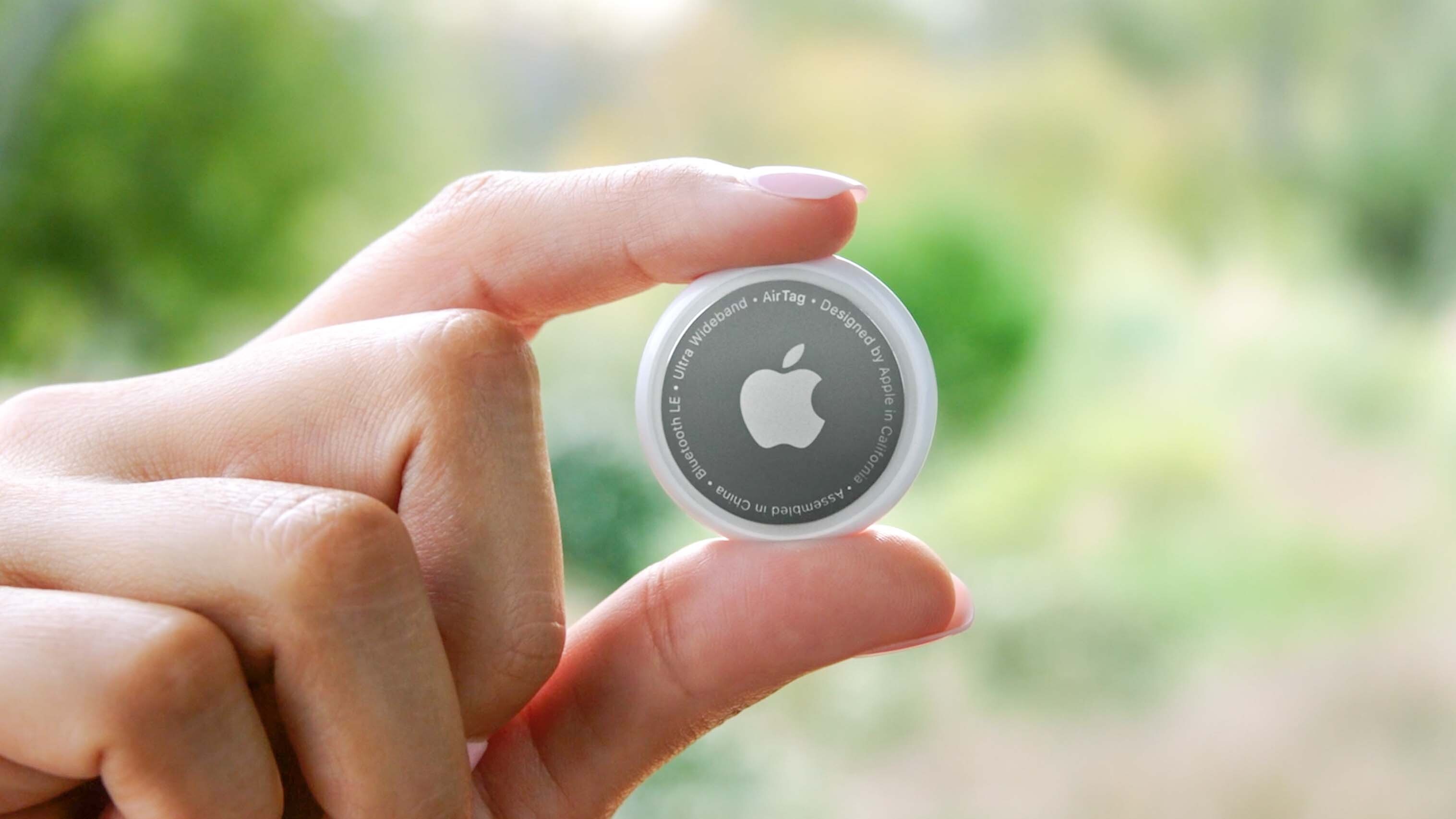
AirTag seems designed to be an iPhone-only affair, as Apple looks to leverage its massive installed base of iOS devices. You interact with the Apple-built tracker from within the Find My app, which comes preinstalled with iOS 14. This software can already track your Apple hardware and pinpoint locations of friends.
While AirTag uses Bluetooth for proximity tracking, not every iPhone can take full advantage of AirTag. The tracker's Precision Finding feature leverages the U1 Ultra Wideband sensor included in the iPhone 11 and later — more on that below. This means that older Apple phones may just as well turn to other key finders (like, say, Tile's) as they won't be able to benefit from Precision Finding.
AirTag vs. Tile design
Tile's trackers are proof that it's hip to be square. Both the Tile Pro and Tile Mate use square designs that include a hole for attaching the tracker to a keychain. Of the two Tiles, the 1.65 x 1.65 x 0.26-inch Pro is slightly larger than the 1.4 x 1.4 x 0.24-inch Mate.
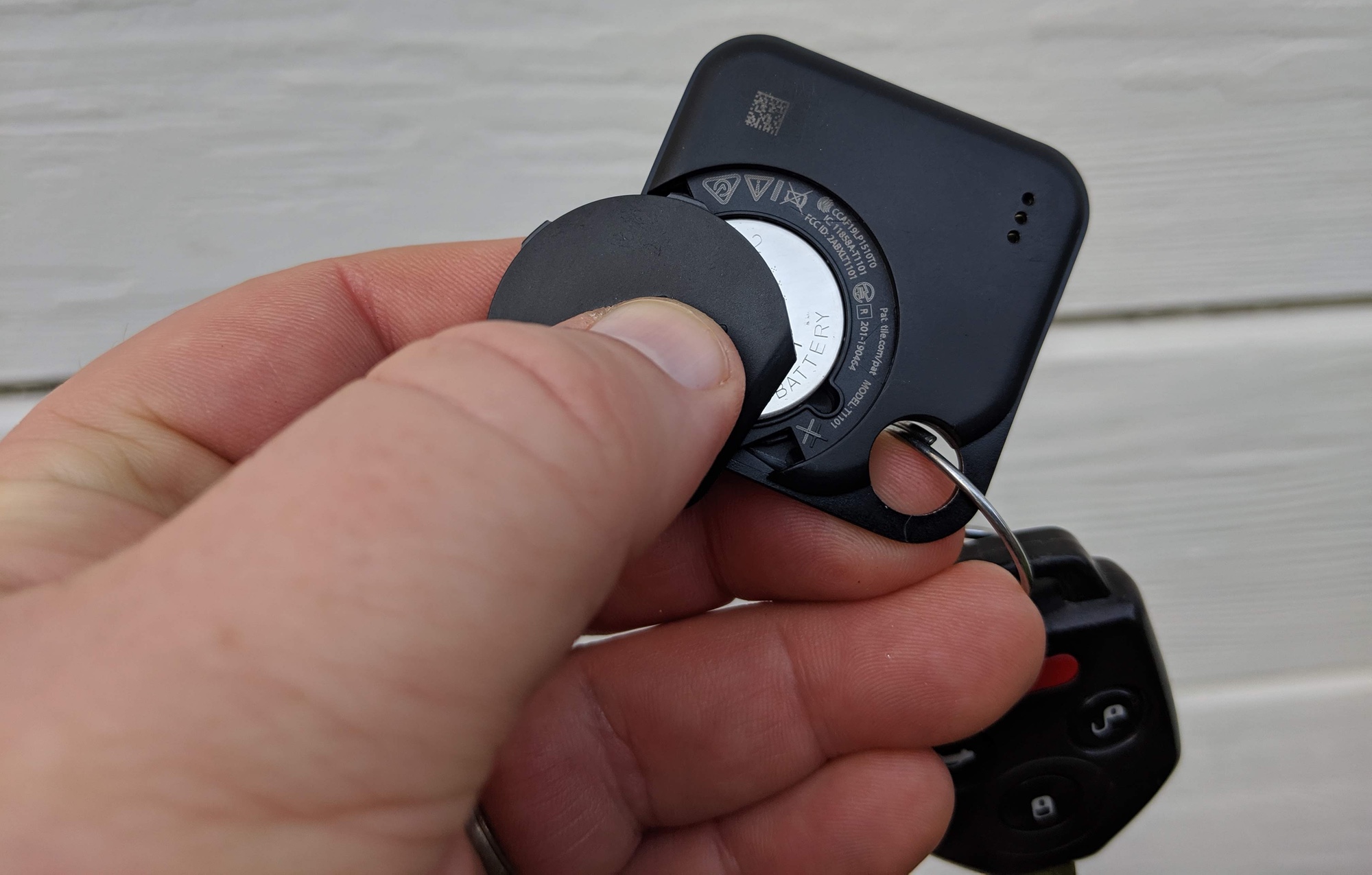
Initial Tiles had a non-replaceable battery, forcing you to replace your key finder after about a year of use. A couple generations ago, Tile switched to replaceable batteries, at least for the Pro and Mate. (The designs of the Tile Slim and Tile Sticker make replacing the battery a non-starter, but those devices will last three years before their built-in batteries conk out.)
As had been rumored, AirTag has a circular design — 1.26 inches in diameter and 0.31 inches thick. At 11 grams (0.3 ounces), you're talking about a device about as a big as a coat button with what's described as a precision-milled design.
Apple promises IP67 water resistance for the AirTag, while the Tile Pro and Tile Mate are merely listed as water-resistant — able to withstand splashes, but not immersion in water.
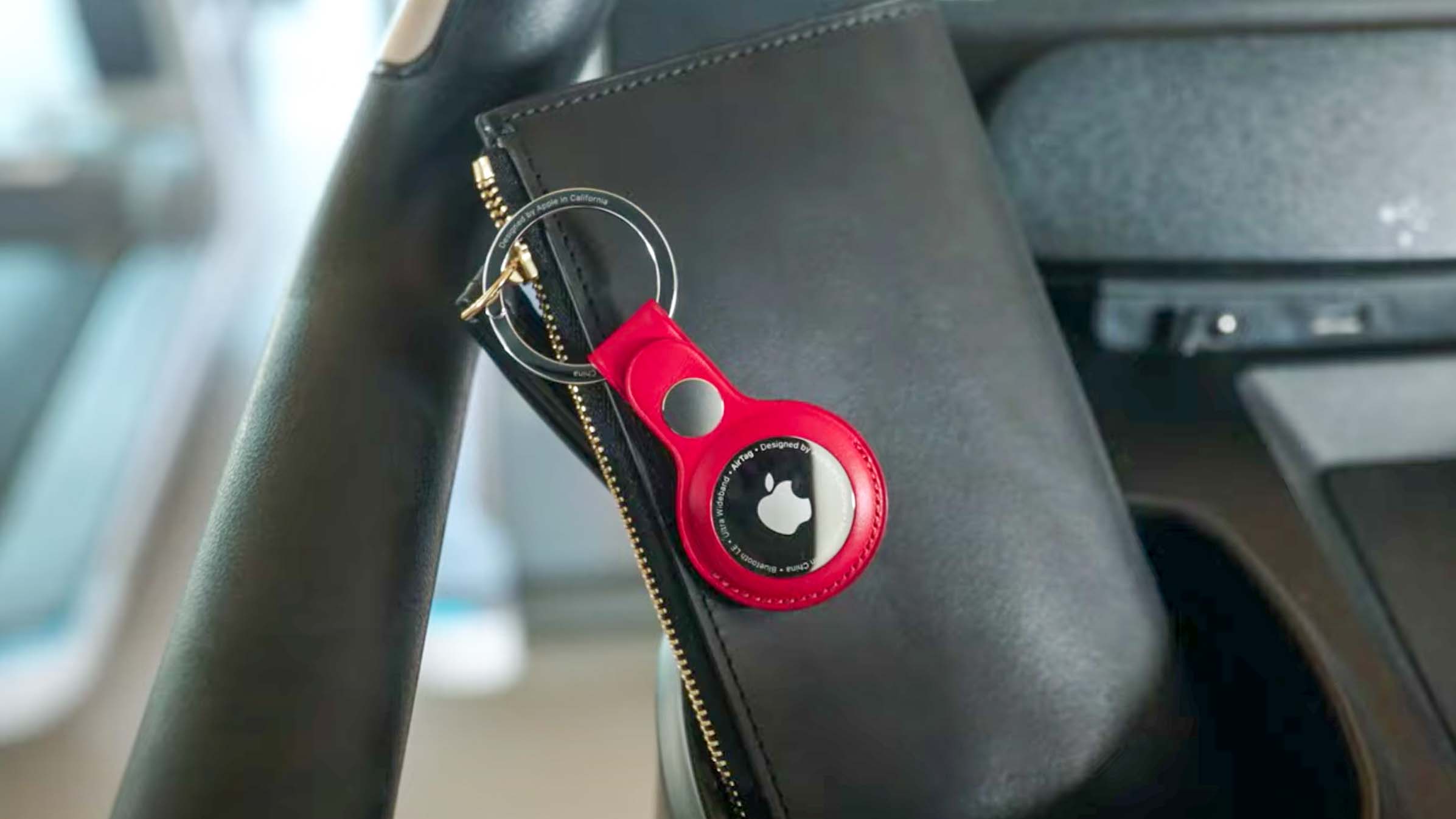
Given Apple's focus on reducing e-waste, you'd be correct to assume that AirTag uses a replaceable battery. Specifically, the tracker is powered by a CR2032 battery that should give you a year's worth of use before you need to swap in a new one. That's the same battery life Tile promises. (The Tile Pro also uses a CR2032, while the Mate features a CR1632.)
AirTag vs. Tile connectivity
Like almost every other key finder (including AirTag), Tile relies on Bluetooth connectivity. The advantage of this is that it's easy to set up, and it means that the tracker works with any kind of smartphone. The disadvantage is that Bluetooth can offer only so much range.
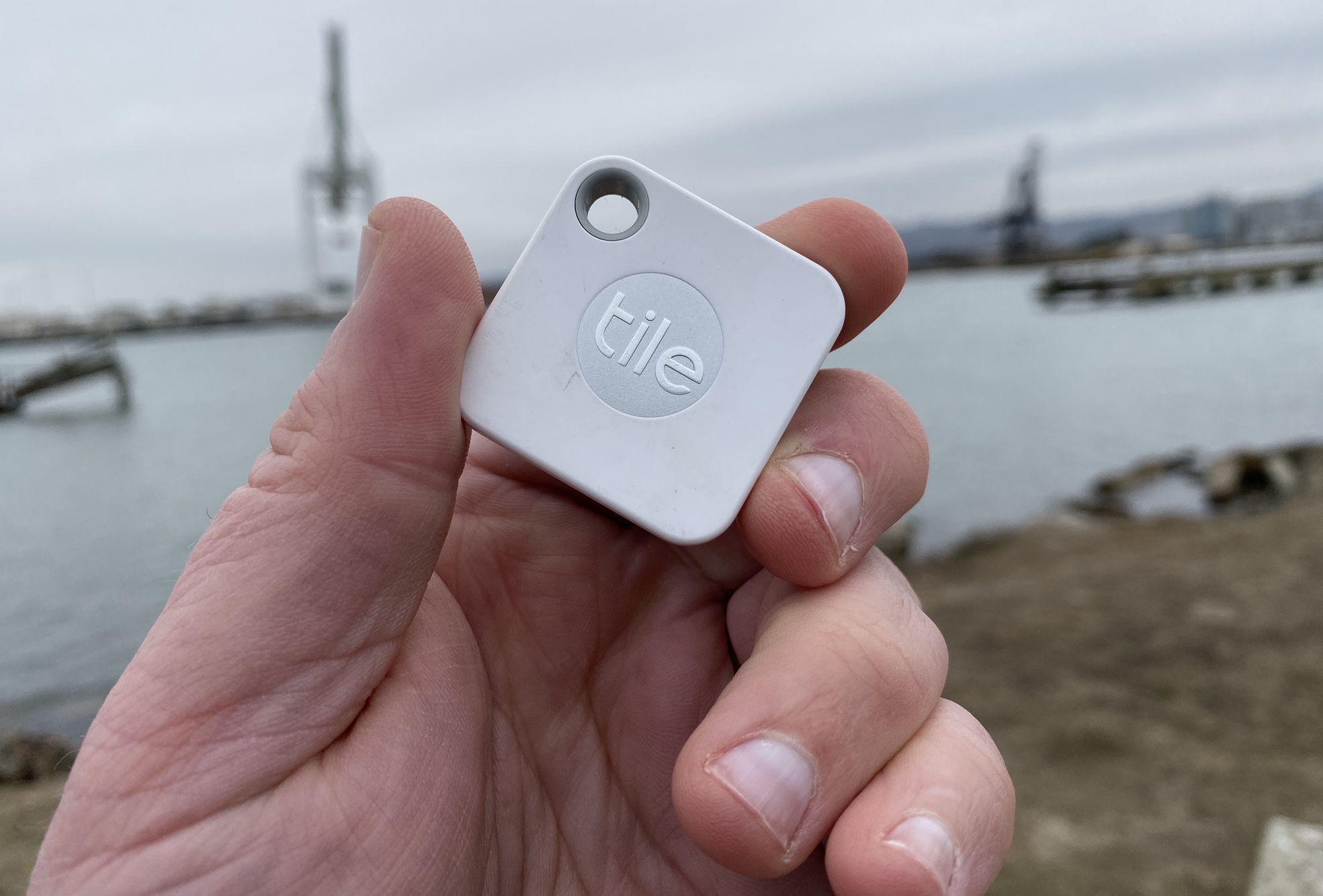
The Tile Pro, which has the best range of any key finder we've tested, can stay connected to a phone up to 400 feet in most cases. That's helpful for tracking down keys you might have misplaced in your house. But it's less ideal for other uses — namely tracking down valuables when they're a greater distance away or, heaven forfend, if you've lost them completely and you don't know where.
In addition to Bluetooth, AirTag taps into the U1 sensor featured in every iPhone released since 2019 (with the exception of the iPhone SE that came out last year). Ultra wideband can include more precise tracking info to help you locate misplaced objects more quickly.
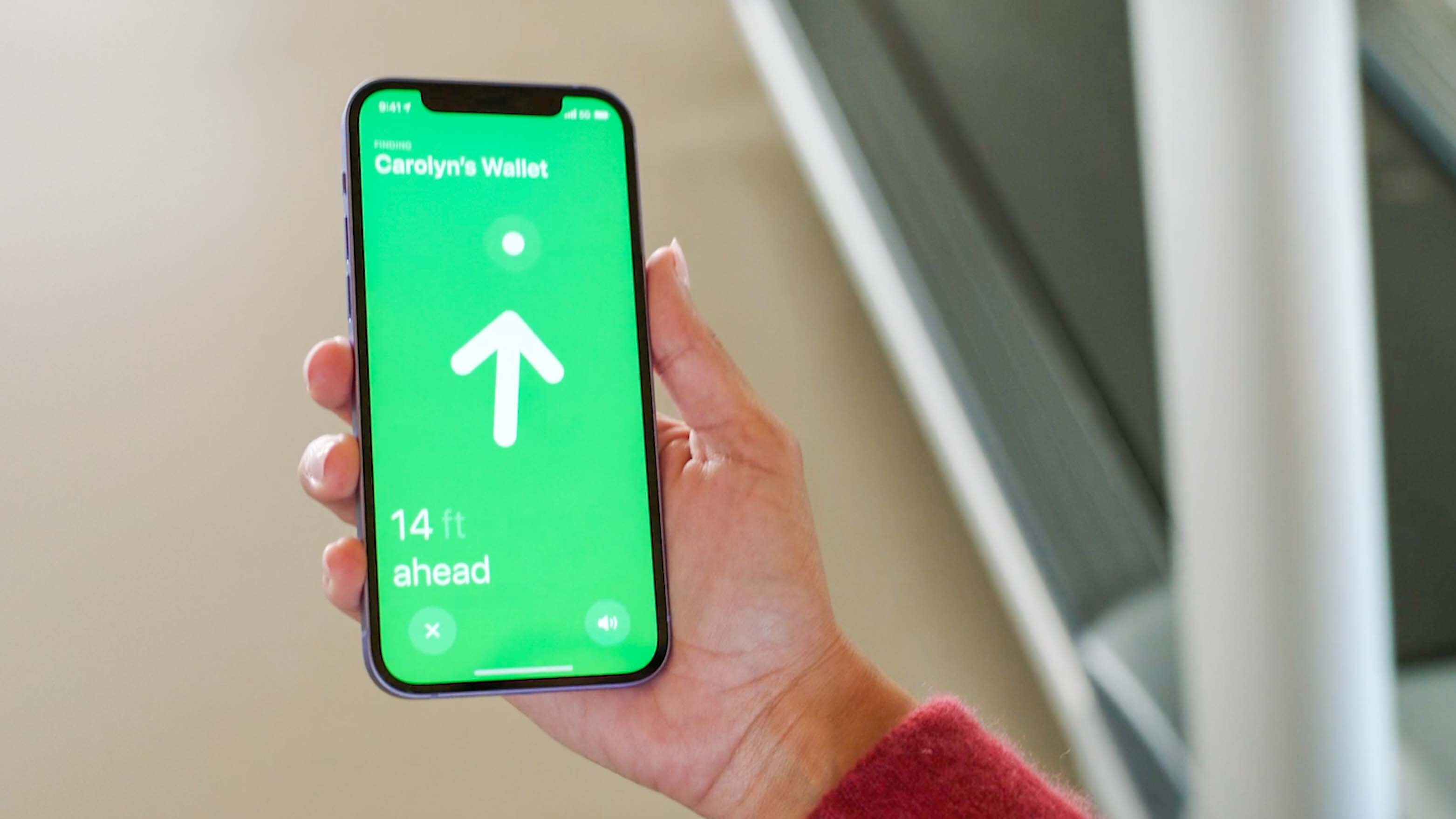
To that end, the Precision Tracking feature in the Find My app will work with the iPhone 11 and 12 models to give you more precise directions on where your AirTag is. An arrow appears on the iPhone's screen to show you which direction to look, and you'll also be given an estimated distance on how far away your keys are. Precision tracking employs haptic and audio feedback, though we'll need to test the feature to see how well it guides us to a misplaced item.
AirTag vs. Tile features
Apart from AirTag's Precision Tracking, finding your keys works pretty much the same with both trackers. From their respective apps, you can press a button and sound an alarm on either the AirTag or Tile to find out its location. AirTag lets you trigger the alarm with a Siri voice command, too. To do that with a Tile product, you need to create a Siri shortcut — a feature first introduced in iOS 12.
Besides tracking down misplaced keys, Tile also has a two-way finder feature, where you can press on a tracker to make your phone ring, in case you can't remember where that device is. Through a subscription, you can also get alerts if you leave home without your Tile tracker (and whatever it's attached to).
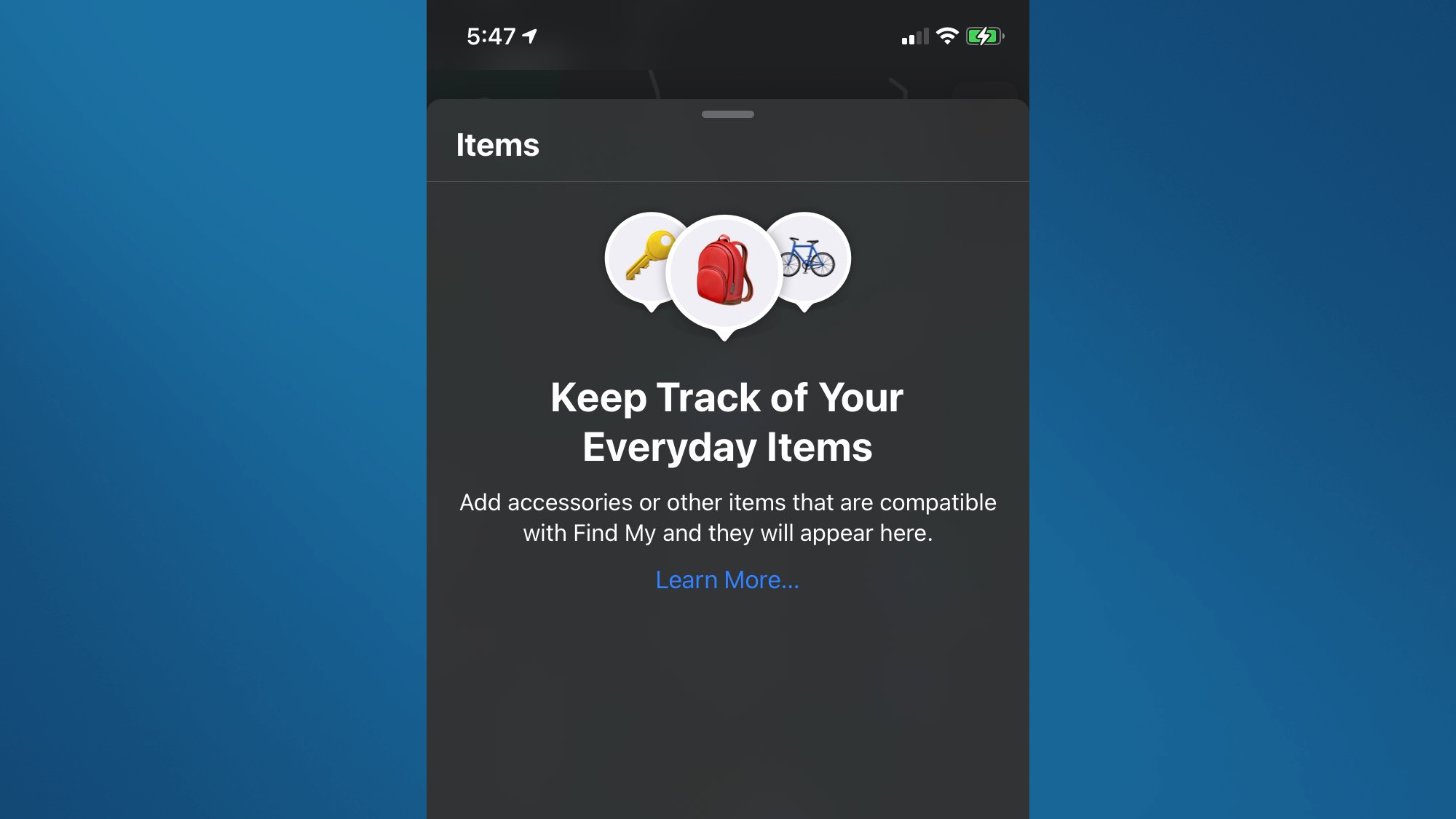
Both AirTag and Tile have similar approaches when you lose an item. Mark something as lost, and Apple and Tile use their respective networks to run background searches using other connected devices. If your lost tracker is detected, you'll get a notification.
In addition, Apple is touting security features on its tracker. AirTag stores no location information and any communication with Find My is encrypted. Plus, Apple is adding an anti-stalking feature that will alert you if an unrecognized AirTag tracker is trying to keep tabs on your location.
Details of the anti-stalking capability first leaked during the iOS 14.5 beta process, so we'd assume that update is going to ship around the April 30 release date for the AirTag. Indeed, Apple says iOS 14.5 is required for AirTag, further firming up the release date for that software.
AirTag vs. Tile outlook
There could be space for both AirTag and Tile key trackers, since the products serve different purposes and could appeal to different audiences. And we'll need to get the definitive word from Apple on just what AirTag can and can't do before we can make any definitive AirTag vs. Tile judgements. That will be determined once we test Apple's new tracker.
Still, there are few bigger players in the consumer tech space than Apple. And its entry into the key-finding business figures to shake things up for everyone.
Philip Michaels is a Managing Editor at Tom's Guide. He's been covering personal technology since 1999 and was in the building when Steve Jobs showed off the iPhone for the first time. He's been evaluating smartphones since that first iPhone debuted in 2007, and he's been following phone carriers and smartphone plans since 2015. He has strong opinions about Apple, the Oakland Athletics, old movies and proper butchery techniques. Follow him at @PhilipMichaels.
-
rlb671 Great review. One thing that wasn't mentioned is what the AirTag bluetooth range is. Another review said it is 40 ft (or less, depending on walls etc.) If true, this would seem to limit its usefulness in some (many?) situations. Was this tested?Reply -
dirtyharry_fi Sounds like Apple fanboy article cause forgot that Tile Pro 2020 model IP68 waterproof rated.Reply
